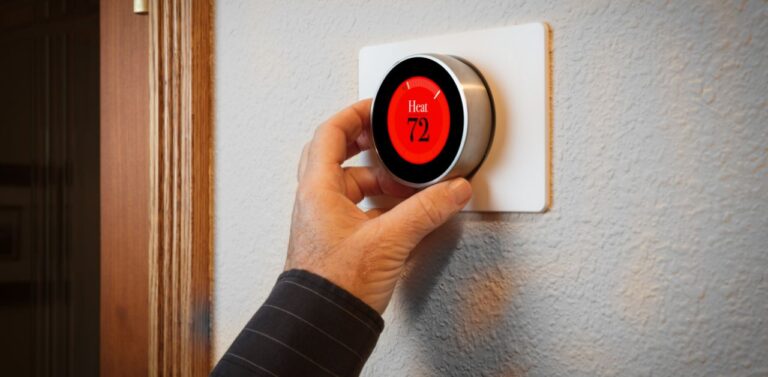
Table of Contents
ToggleAs the temperatures drop and winter sets in Victoria and beyond, keeping warm often means cranking up the heater. But you might be unknowingly burning money with inefficient habits or outdated systems. According to Climateworks Centre, Australian households living in low-performance homes with outdated heating and cooling systems can lose up to $2,200 per year on energy bills, around 43–51% more than those in upgraded, efficient homes. The losses are especially severe in winter when inefficient systems struggle to maintain comfort. Here are 5 common heating mistakes costing you money this winter, as well as how to fix them. Plus, discover how you can save money in the long run.

One of the most common mistakes we see people make is neglecting to service their heaters or dirty air filters. When your heating system is clogged with dust, it forces heaters or reverse-cycle systems to work harder. As a result, it uses more energy and wears out faster.
Here’s how to fix it:
There’s better airflow, reduced energy use, and fewer breakdowns after care. Additionally, you avoid costly emergency repairs or early replacements.

If your heater is on all day at an excessive 24 °C, or if it’s cranked to the max the moment you walk in the door, you might want to consider changing these habits. They won’t heat your home faster; you’re only wasting your money.
Most heating systems deliver warmth at a steady rate. This means, setting the temperature higher won’t make your home heat up faster; it’ll just keep running longer and use more energy. In the end, you’re not gaining any real benefit whilst unnecessarily accumulating higher energy costs.
Here’s how to fix it:
Space heaters may feel cosier, but they’re often inefficient and impractical for whole-home heating. These heating system types will work better for small zones, not large living spaces.
Here’s how to fix it:
Remember to reduce energy use for heating by using only what you need, and where you need it.
Leaky windows, uninsulated walls, and even thin curtains can allow heat to escape rapidly, wasting up to 40% of the energy your heater produces. When warm air seeps out and cold air creeps in, your system is forced to work much harder to maintain a consistent temperature. This not only drives up your energy bills but also puts unnecessary strain on your heating unit, potentially shortening its lifespan.

Addressing these weak points in your home’s thermal envelope is one of the most effective ways to improve comfort and reduce running costs during winter.
Here’s how to fix it:
These simple DIY measures help ensure your home stays snug. When these are in place, your house retains heat longer and uses your heater less.
Older ducted systems or split units may harbour blocked ducts or leaks that drastically cut efficiency. These can significantly reduce airflow and force the system to work harder than necessary. This not only increases energy consumption but also leads to uneven heating, higher bills, and added wear on the unit.
Despite these risks, many homeowners rarely inspect or maintain these systems, allowing small issues to compound into expensive problems over time. Regular checks and professional servicing can uncover and resolve these inefficiencies before they escalate.
Here’s how to fix it:
If these are kept in mind, then there’s stronger airflow and better temperature consistency across rooms. There’s no need to blast energy to fix poor airflow.
Here are more tips to keep your home warm without driving up your energy bills. These small moves collectively save hundreds of dollars each winter without sacrificing comfort.

Doing everything on your own can only go so far, especially with hidden issues like refrigerant leaks, thermostat faults or duct degradation. This is where the help of a professional heating service, like those offered by us here at Tailored Heating and Cooling comes in, providing:
Taking proactive steps such as booking a professional service, checking filters, and addressing any minor faults, can go a long way in helping you avoid unexpected breakdowns when you need heating most. It also ensures your system runs efficiently throughout the colder months, keeping your energy use in check and helping you avoid excessive heating bills.
Regular maintenance now means greater reliability and peace of mind later. Reach out to us and schedule a service, find out how you can avoid these 5 heating mistakes costing you money, and keep your home warm and safe this season.
Step into a world of ultimate comfort and unmatched energy savings with our custom-designed heating and cooling solutions. Take the first step towards a smarter, greener home—request your free, personalised quote today and embrace the Tailored Difference!